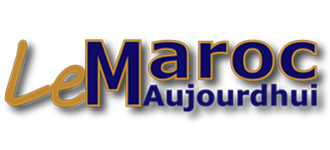Dernières Nouvelles
Page d'accueil
- Actualités locales, arabes et internationales
- Interviews Artistiques ou Culturelles/ Interviews d'artistes
- Les titres
- Sport
- Vidéos
- Célébrités
- Entrevues
- Affaires
- Mode
- Santé et Nutrition
- Vues & Analyses
- Presse
- Les infos les plus Lues
- Météo
- Evasion
- Autos
- Dessin animé
- Les Femmes à la Une
- Actu Stars & Personnalités
Sport
Culture
Business
Divertissement
Mode
Santé
Voyages et Evasion
Décor
How to get more done by doing less

Tehran - FNA
Experts and psychologists believe that we spend too much time working, logging more hours at the office.
Brigid Schulte, a Washington Post reporter and the author of a new book, "Overwhelmed: Work, Love and Play When No One Has the Time" argues that we spend too much time working, logging more hours at the office than employees in any other developed country save Japan and South Korea. As a result, "we have a lot of unproductive, sick, unhappy, burned out, and disengaged workers," Schulte noted. Ironically, we are less productive, creative, and innovative than we would be if we had more time off.
Our continual state of busyness, she explained, prevents us from entering the loose, associative mental state in which unexpected connections and aha! insights are achieved. Schulte was drawing here on the research of psychologists and neuroscientists, one of whom, Northwestern University professor Mark Beeman, was also on the panel.
Beeman and his collaborators have found that although we may appear idle while daydreaming or mind wandering, the brain is actually working especially hard in these moments, tapping a greater array of mental resources than are used during more methodical thinking.
This unfocused "default mode," Schulte has written, "is like a series of airport hubs in different and typically unconnected parts of the brain." When activated, it "puts together stray thoughts, makes seemingly random connections and enables us to see an old problem in an entirely new light."
If we don't allow our minds to have this kind of downtime — because we're always under stress and on deadline, always making calls and checking email — such connections and insights won't materialize.
"At work and at school, we expect people to pay attention, to focus," Beeman observed. "To focus on one thing, you have to suppress a lot of other things. Sometimes that's good. But sometimes a solution to a problem can only come from allowing in apparently unrelated information, from giving time to the quieter ideas in the background."
Schulte and Beeman contend that we need to make room in our lives for two distinctly different kinds of mental activity: the directed, focused attention usually expected of us at work and at school, but also a more diffuse and leisurely state in which we're focusing on nothing in particular. "Oscillating" between these two modes — a kind of interval training for the mind — is the best way to reap the benefits of both kinds of thought.
"As we move ever further into a knowledge economy, in which ideas are our products, we have to think about where ideas come from," Schulte concluded. Where they come from, she argued persuasively, is not only from conventional work, but from productive leisure.
GMT 07:31 2015 Jeudi ,15 Janvier
Male birth control shows promise in baboon studyGMT 06:56 2015 Jeudi ,15 Janvier
8 daily habits that will change your lifeGMT 06:56 2015 Jeudi ,15 Janvier
How to get more done by doing lessGMT 14:48 2015 Dimanche ,04 Janvier
7 ways to build wealth while you sleep

GMT 07:31 2015 Jeudi ,15 Janvier
Male birth control shows promise in baboon studyGMT 06:56 2015 Jeudi ,15 Janvier
8 daily habits that will change your lifeGMT 06:56 2015 Jeudi ,15 Janvier
How to get more done by doing lessGMT 14:48 2015 Dimanche ,04 Janvier
7 ways to build wealth while you sleep

Sources de grogne sociale
Mines et pétrole, richesses du Pérou
Lima - Maroc Aujourdhui
Les conflits sociaux autour de projets miniers et pétroliers s'intensifient au Pérou, provoquant l'inquiétude du gouvernement et des secteurs industriels qui craignent pour les investissements dans ce secteur-clé de l'économie
Paris-Roubaix
Les quatre clés de la 'reine'
Compiègne - Maroc Aujourdhui
Paris-Roubaix se joue dimanche au gré des 27 secteurs pavés qui parsèment les 253,5 kilomètres du parcours. Mais, pour le directeur de course Thierry Gouvenou, quatre d'entre eux sont des moments-clés: Troisvilles, Arenberg, Mons-en-Pévèle et le Carrefour de l'Arbre. .Calories contre beuveries
La bataille s'engage à Bruxelles
Bruxelles - Maroc Aujourdhui
Jouer l'atout minceur pour lutter contre beuveries et alcoolisme: le projet d'étiqueter les calories des bières, vins et whisky fait son retour en Europe, mais reste confronté à la résistance des pays viticoles et des lobbies. Le Parlement européen aBoss Bespoke : autopsie d’un sac
Casablanca - Le Maroc Aujourd’hui
« Est luxueux tout ce qui n’est pas indispensable mais délectable s’il est sensible à la grâce » affirmait l’économiste et écrivain Jean Castarède. Une définition qui sied parfaitement au monde des accessoires, et particulièrement des sacs, chouchous des maisons de mode. On a voulu en savoir plus sur la genèse de l'un de ces objets du désir. Jason Wu, le directeur artistique de Boss, nous a accompagnés. Durant vingt ans, de 1994 à 2013, les ventes mondiales de maroquinerie ont connu des hausses annuelles de 8 à 11%, soit plus du double que le reste du marché du luxe (1) et ce, malgré la crise. Outre une avidité à ouvrir ce qui est considéré comme l’une des portes d’entrée du luxe, la raison de cette croissance insolente était due à une offre grandissante. De la plus petite marque à la plusMaintained and developed by Arabs Today Group SAL.
All rights reserved to Arab Today Media Group 2025 ©
Maintained and developed by Arabs Today Group SAL.
All rights reserved to Arab Today Media Group 2025 ©



















Envoyer Vos Commentaires
Commentaire comme invité